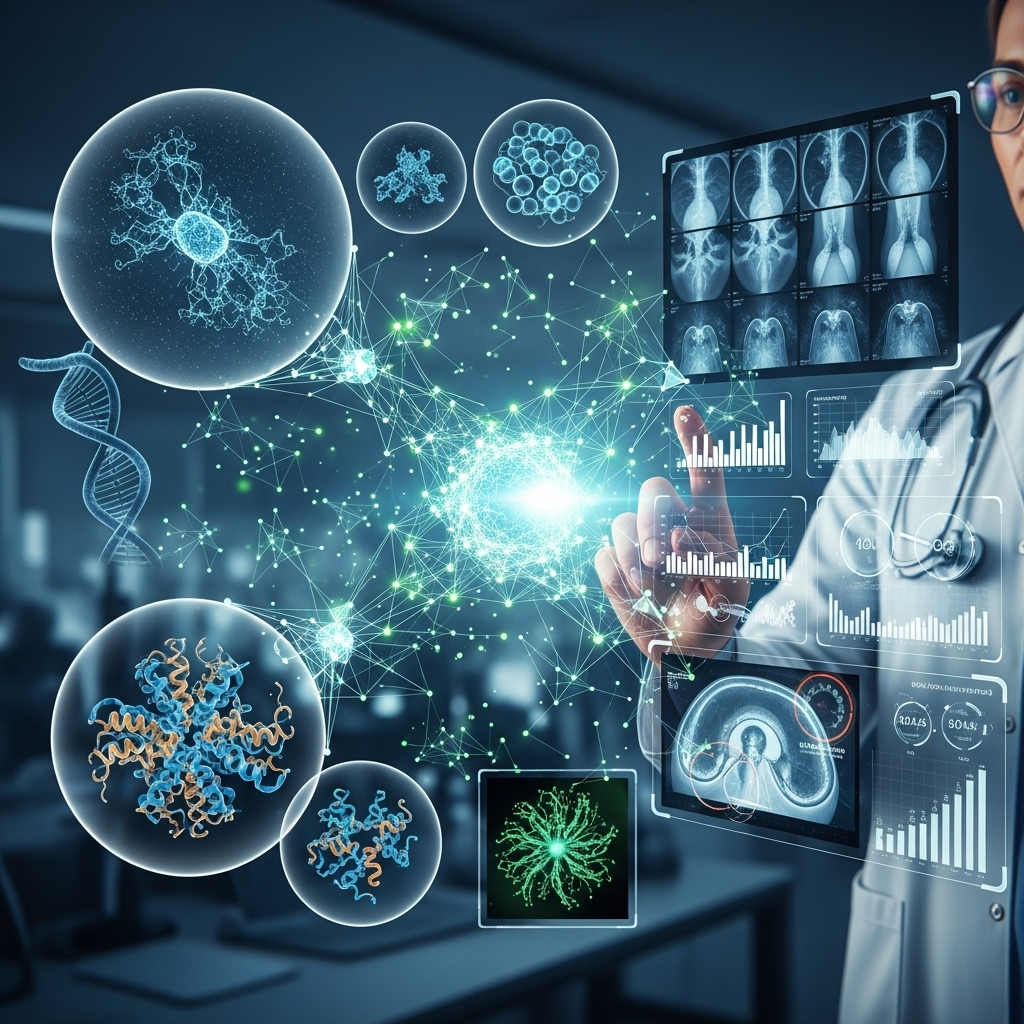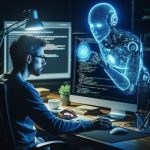A. Early Disease Detection & Diagnosis
AI algorithms analyze medical imaging (X-rays, MRIs, CT scans) faster and more accurately than humans. Examples:
- Google’s DeepMind detects eye diseases (diabetic retinopathy) with 94% accuracy.
- IBM Watson helps diagnose cancer by analyzing medical records and research papers.

B. Drug Discovery & Development

Traditional drug development takes 10+ years and billions of dollars. AI speeds this up by:
- Predicting drug interactions (e.g., BenevolentAI)
- Identifying potential treatments (AI helped find Baricitinib for COVID-19)
C. Robotic Surgery & Assistance

- Da Vinci Surgical System assists surgeons with minimally invasive procedures.
- AI-powered robots reduce human error in complex surgeries.
D. Virtual Health Assistants & Chatbots

- Symptom-checking chatbots (Ada, Buoy)
- Mental health support (Woebot, an AI therapist)
2. Benefits of AI in Healthcare
✔ Faster & More Accurate Diagnoses
- AI reduces misdiagnosis rates (5% of U.S. patients are misdiagnosed yearly).
- PathAI improves pathology results by 50%.
✔ Cost Reduction & Efficiency
- Predictive analytics prevents unnecessary hospitalizations.
- Automated admin tasks (billing, scheduling) save $18 billion annually.
✔ Personalized Medicine
- AI analyzes genetic data to recommend custom treatments.
- Tempus uses AI to tailor cancer therapies for individual patients.
3. Challenges & Ethical Concerns
❌ Data Privacy Risks
- HIPAA compliance is critical when handling patient data.
- Cybersecurity threats (hospitals are prime targets for ransomware).
❌ Bias in AI Models
- If trained on non-diverse datasets, AI can misdiagnose minorities.
- Example: An AI skin cancer detector performed worse on darker skin tones.
❌ Job Displacement Fears
- Will AI replace doctors? No—but it will assist them.
- New roles like “AI Healthcare Specialist” are emerging.
4. The Future of AI in Healthcare (2025 & Beyond)
🔮 AI-Powered Wearables & Remote Monitoring

- Smartwatches detecting heart arrhythmias (Apple Watch ECG).
- AI stethoscopes diagnosing lung diseases at home.
🔮 AI in Genomics & CRISPR

- Editing genes to prevent hereditary diseases.
- Companies like Deep Genomics use AI for DNA analysis.
🔮 Fully Autonomous Robotic Surgeons

- Self-learning robots performing surgeries with zero human intervention.
Conclusion
AI is not replacing doctors—it’s empowering them. From diagnosing diseases earlier to customizing treatments, AI is making healthcare smarter, faster, and more accessible.
However, ethical guidelines, unbiased data, and strong cybersecurity are crucial for responsible AI adoption.


